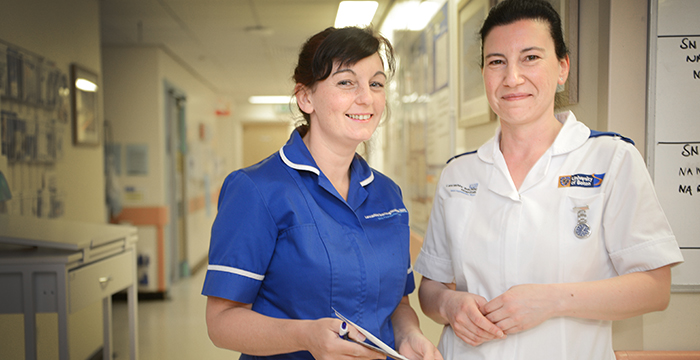Collaborative Learning in Practice (CLiP®)
Collaborative Learning in Practice (CLiP®) is an innovative clinical education model designed to enhance the learning experience of healthcare learners by fostering a collaborative and supportive environment. Originating in Amsterdam and introduced to the UK by Charlene Lobo, Senior Lecturer at the University of East Anglia, CLiP® has been successfully implemented in various NHS trusts, including Royal Preston Hospital and Chorley & South Ribble Hospital.
How CLiP® Works in a Learning Environment
Learners are assigned to a practice environment and divided into smaller groups. These groups consist of learners from various year levels, promoting peer learning and support.
Each group is supervised by a coach rather than a traditional mentor. The coach is responsible for guiding the learners in delivering holistic patient care, covering essential skills, documentation, ward rounds, and shift handovers. Coaches to provide guidance and ensure that learners meet their learning objectives. They help bridge the gap between theoretical knowledge and practical application, offering continuous feedback and support to enhance the overall learning experience.
Learners engage in a comprehensive range of patient care activities. This includes performing essential clinical skills, maintaining accurate documentation, participating in ward rounds, and conducting handovers. Additionally, learners have opportunities to follow their patient’s journey through specialist units, attend surgeries, and partake in specialised treatments, thereby gaining a broader practical experience.
An overarching Practice Assessor supports the coach, ensuring the quality of the learning experience. The Practice Assessor is responsible for overseeing the learners practice assessment documentation and providing necessary support to both the coach and learners.
Benefits of Collaborative Learning in Practice (CLiP®)
The collaborative environment helps address the challenges of traditional mentoring, such as workload balance and teaching time. This model aims to reduce stress for both learners and practice assessors, promoting a more supportive and effective learning experience.
By involving practice supervisors and educators, CLiP® ensures comprehensive support and continuous feedback, leading to richer learning experiences and better-prepared healthcare professionals.
The structured support system and hands-on learning opportunities help mitigate issues related to perceived lack of support, reducing learner dropout rates compared to traditional mentoring models.
At Lancashire Teaching Hospitals NHS Foundation Trusts, we are dedicated to implementing innovative educational methods like CLiP® to ensure our learners receive high-quality clinical education and are well-prepared to deliver exceptional patient care.

 In this section
In this section